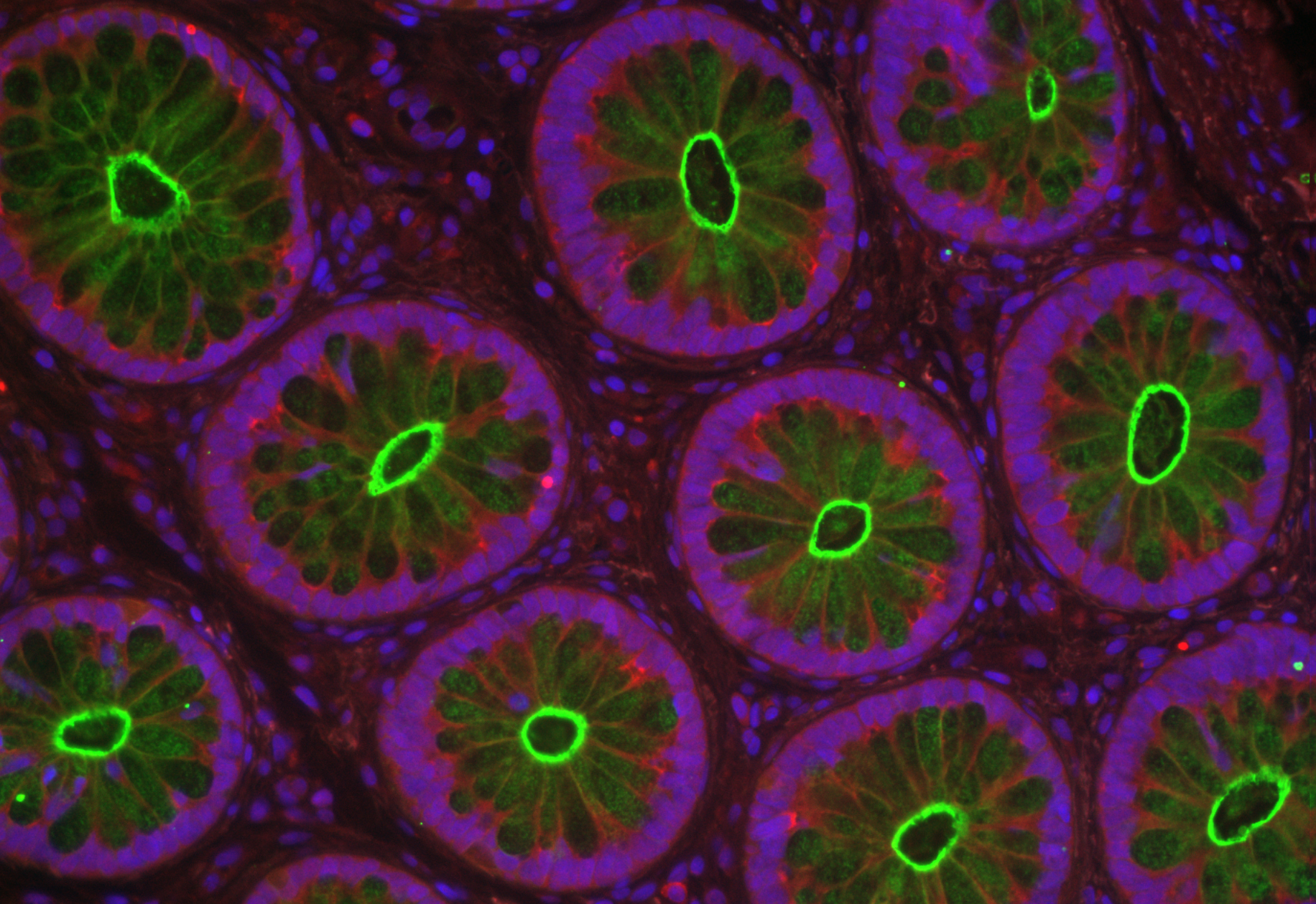Kristi Neufeld, University of Kansas, US
Christian Gomez, University of Kansas, US
A subset of mucus secreting cells lining the colon of patients suffering from ulcerative colitis, a type of inflammatory bowel disease (IBD), may help protect against the disease. A key feature of inflammatory bowel disease (IBD) is the chronic destruction and replacement of the cells lining the intestine. Even under normal conditions, intestinal lining cells are replaced every week.
New cells are born and mature into adult cells with specific roles. Some of these cells make mucus to coat and protect the intestine from bacteria that live inside the colon. When the balance of cell birth, maturation and death is disrupted, diseases such as IBD occur. Human IBD patient tissues typically have diminished populations of goblet cells, specialized cells that normally produce the mucus which covers the intestinal lining cells.
Previous research had shown that the Adenomatous polyposis coli (APC) protein helps maintain balance of the intestinal environment, but a direct role for APC in inflammation was unexplored.

In our new study published a few weeks ago in Experimental Physiology, we showed high levels of APC in a subset of mucus-secreting intestinal cells called goblet cells.
These Apchigh cells are particularly prominent in the distal colons of human patients suffering from ulcerative colitis. Apchigh cells also increase in number when mice are treated to experimentally induce colitis. Using human colon cells grown in a dish, we started to evaluate the function of APC in goblet cells. We found that increasing the level of APC resulted in activation of an inflammatory signalling pathway (called IL-1), which is also activated in patients with active UC.
Activation of this pathway also stimulates the expression and secretion of one of the main mucus proteins which protects the lining of the intestines. We hypothesise that this high level of APC illuminates a critical function of APC in restoring layers of mucus that protect cells lining the intestines. The finding that APC positively regulates genes capable of activating a key inflammatory signalling pathway that contribute to the severity of UC has potential human health implications.
By increasing the expression of these two genes, APC may influence disease severity. The findings also suggest that APC promotes increased mucus production and secretion, helping restore balance to inflamed colons.Further studies will determine the precise functions of APC in inflammation and homeostasis, likely providing new targets for IBD therapy.
Please note that all views expressed on The Physiological Society’s blog reflect those of the author(s) and not of The Society.
